The First Step in Solving a Problem is Admitting that You Have One
Two recent interviews should alarm rank-and-file Southern Baptists and influence messengers’ votes in Indianapolis. The interviews demonstrate that the SBC, in the words of pastor Willy Rice, has “got a problem.” Every messenger to the Indianapolis Convention deserves to know whether candidates for president of the SBC agree with Rice’s assessment and why or why not.
The first interview features Megan Basham, a Southern Baptist reporter at the Daily Wire. She sat down with Tom Ascol of Founders Ministries to discuss her upcoming book, Shepherds for Sale: How Evangelical Leaders Traded the Truth for a Leftist Agenda. Ascol asked Megan if anything “surprised” her from her research. She mentioned that, during her fact-finding, three names in particular kept popping up in connection with dark money and progressive funding bent on influencing evangelicals in America to adopt progressive political positions and beliefs: J.D. Greear, Russell Moore, and Timothy Keller.
For Southern Baptists, those first two should be concerning, considering one served as our Convention president for three years, and another served as the head of our Ethics and Religious Liberty Commission (ERLC) for eight.
The second interview was with Center for Baptist Leadership’s Executive Director, William Wolfe, and Florida mega-church pastor and former candidate for the SBC presidency, Willy Rice. After revealing an array of SBC establishment strongarm tactics designed to induce him to cooperate with a “social justice” agenda rather than a “biblical” one, Rice concluded that he now thinks “We need another conservative resurgence.”
Several times during the interview, Rice explained how he came to “connect the dots” between what he heard from the “there’s no liberal drift” contingent and the facts staring him in the face. Once he started pulling on that thread, the conclusion was inescapable: “We’ve got a problem.”
Some background here will be helpful for those who haven’t seen the interviews. At the Nashville Convention in 2021, Mike Stone lost to Ed Litton (who was loudly endorsed by Southeastern Seminary President Danny Akin) in a runoff (he had been the highest vote-getter on the first ballot, but alas). This loss came after Russell Moore, Griffin Gulledge, and others hurled fallacious charges against him in the run-up to and during the Convention (lies that neither Moore nor Gulledge have ever apologized for). Shortly after Litton won, he was outed as a plagiarist. At the end of a disgraced and disgraceful year as SBC president, Litton played a hand in tapping Rice to run to succeed him.
During Rice’s brief foray into the presidential race, Rice experienced several unpleasant encounters with the SBC Platform men and the “survivor’s community” that led to his awakening to the increasingly liberal influences in the SBC. These events included learning of the SBC elites’ fear of Rachael Denhollander (being told he can’t cross her) and an attempt by Baptist News Global to smear popular preacher and bestselling author Voddie Baucham.
Rice also mentioned that someone in SBC leadership told him he shouldn’t recommend Ministry Safe, a nationally recognized firm that trains thousands of churches to spot, prevent, and respond to abuse. Rice had his own church—all his staff and volunteers—attend a full day of training by Ministry Safe and found it to be excellent. He highly recommends them. But then he was told not to mention them, which he found astonishing. Why? Because they “help churches” and are not “survivor-centric enough.”
Upon reflection, Rice remembered this sage advice that he was given during his SBC odyssey: “When the people you think are good guys tell you the people you know are good guys, that they’re bad guys, then maybe the people you think are the good guys aren’t the good guys.”
In a bold act of what amounts to “switching teams” in the SBC, Rice eventually endorsed and nominated Mike Stone in his run against establishment candidate Bart Barber in 2023. Rice now argues that Stone is owed an apology for his treatment at the hands of SBC brass.
Today, Rice and Ascol—and thousands of faithful pastors and lay members across the country—are sounding the alarm to alert Southern Baptists that predatory progressive forces have the SBC in the crosshairs and that only a second conservative resurgence will suffice to defeat it.
Rice’s revelations and Basham’s findings mean that establishment construal of the choice messengers face in Indianapolis does not work this year and has been unwarranted for almost a decade now. SBC leading men like J.D. Greear, Ed Litton, Bart Barber, and their partner James Merritt have all told us that the choice was between “establishment unifiers and rogue dividers.” For messengers this year, the two interviews do for us what the facts did for Rice, “awakened” us to reality—we’ve got a problem.
What’s the problem? It’s an egalitarian problem. It’s a financial mismanagement problem. It’s a social justice problem. It’s a cancellation problem. It’s an LBGTQ+ compromise problem. It’s a surrender to the culture problem. Fundamentally, it’s a Bible problem. Over the last decade, the SBC has increasingly been led by presidents who are willing to compromise on the Word of God in order to win approval from the world. It’s a problem that only another conservative resurgence can solve.
Surely, candidates for the SBC presidency should answer questions related to these stunning interviews. Questions such as, “Do you agree or not that the SBC has a problem?” If so, “What is the problem?” And “What will you do to address it?” Or, “Do you believe messengers to the convention in Indianapolis would benefit from listening to both of these interviews?” and “Why or why not?”
But the first question messengers should answer about a candidate is this: “Do you acknowledge or deny the existence of the problem?”
Any candidate who sidesteps the substance of these two interviews cannot provide the needed leadership of the largest denomination in America. Any candidate who merely trots out a boilerplate message of unification around evangelism and missions cannot help Southern Baptists unify around evangelism and missions.
Because there is a big problem that must be addressed to make such unification possible. Megan Basham and Willy Rice have shown us that this is so.
Will we listen? Will we heed? Will we vote accordingly?
-

Dr. DeVine teaches historical theology at a seminary in Birmingham, Alabama. He is the author of multiple books and has written extensively for theological journals. Mark also writes on the intersection of faith, work, culture, and politics for national online magazines and has served as pastor for churches in Indiana, South Carolina, Kentucky, Missouri, and Alabama.

